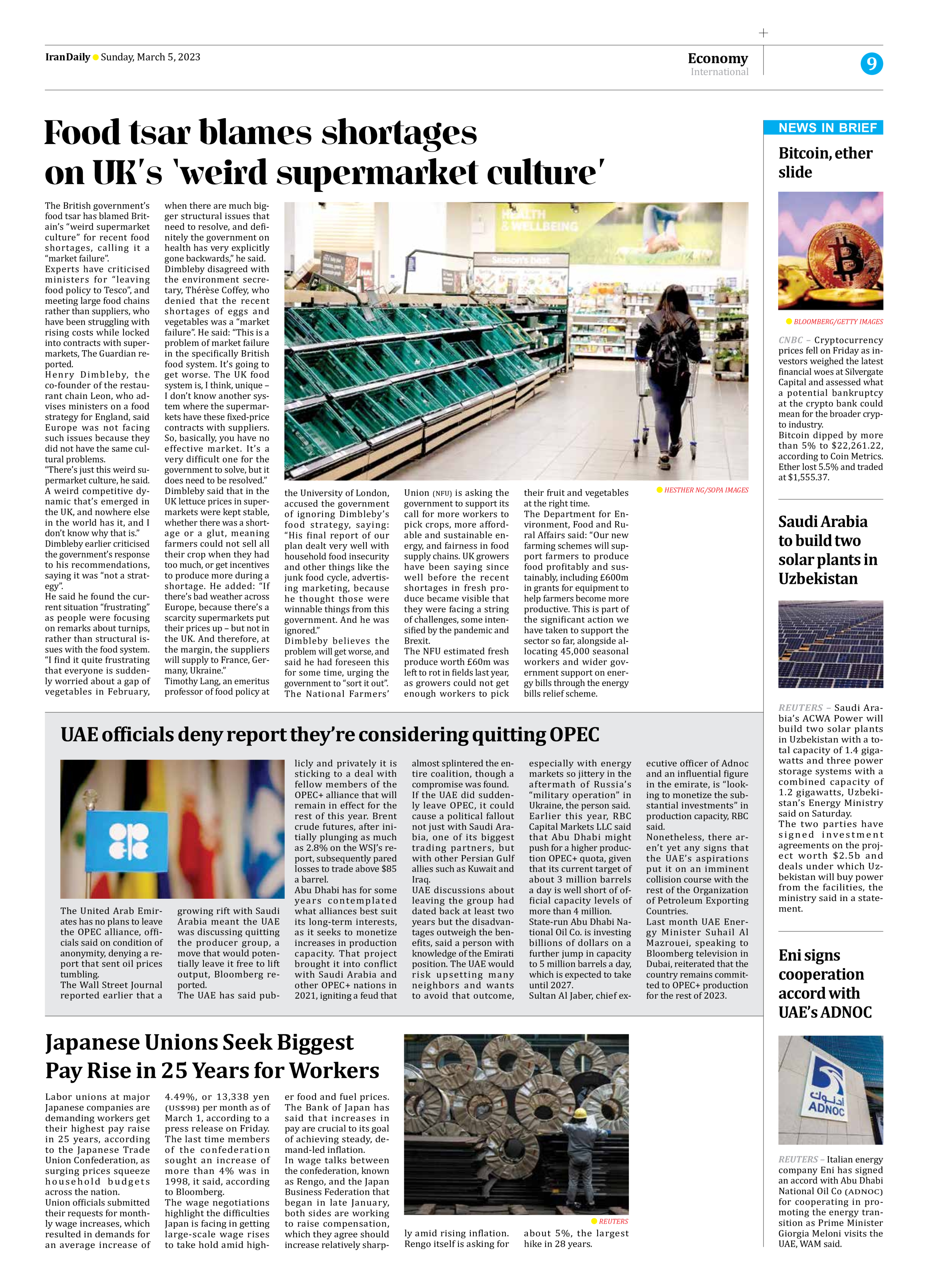
Food tsar blames shortages on UK’s ‘weird supermarket culture’
The British government’s food tsar has blamed Britain’s “weird supermarket culture” for recent food shortages, calling it a “market failure”.
Experts have criticised ministers for “leaving food policy to Tesco”, and meeting large food chains rather than suppliers, who have been struggling with rising costs while locked into contracts with supermarkets, The Guardian reported.
Henry Dimbleby, the co-founder of the restaurant chain Leon, who advises ministers on a food strategy for England, said Europe was not facing such issues because they did not have the same cultural problems.
“There’s just this weird supermarket culture, he said.
A weird competitive dynamic that’s emerged in the UK, and nowhere else in the world has it, and I don’t know why that is.”
Dimbleby earlier criticised the government’s response to his recommendations, saying it was “not a strategy”.
He said he found the current situation “frustrating” as people were focusing on remarks about turnips, rather than structural issues with the food system. “I find it quite frustrating that everyone is suddenly worried about a gap of vegetables in February, when there are much bigger structural issues that need to resolve, and definitely the government on health has very explicitly gone backwards,” he said.
Dimbleby disagreed with the environment secretary, Thérèse Coffey, who denied that the recent shortages of eggs and vegetables was a “market failure”. He said: “This is a problem of market failure in the specifically British food system. It’s going to get worse. The UK food system is, I think, unique – I don’t know another system where the supermarkets have these fixed-price contracts with suppliers. So, basically, you have no effective market. It’s a very difficult one for the government to solve, but it does need to be resolved.”
Dimbleby said that in the UK lettuce prices in supermarkets were kept stable, whether there was a shortage or a glut, meaning farmers could not sell all their crop when they had too much, or get incentives to produce more during a shortage. He added: “If there’s bad weather across Europe, because there’s a scarcity supermarkets put their prices up – but not in the UK. And therefore, at the margin, the suppliers will supply to France, Germany, Ukraine.”
Timothy Lang, an emeritus professor of food policy at the University of London, accused the government of ignoring Dimbleby’s food strategy, saying: “His final report of our plan dealt very well with household food insecurity and other things like the junk food cycle, advertising marketing, because he thought those were winnable things from this government. And he was ignored.”
Dimbleby believes the problem will get worse, and said he had foreseen this for some time, urging the government to “sort it out”.
The National Farmers’ Union (NFU) is asking the government to support its call for more workers to pick crops, more affordable and sustainable energy, and fairness in food supply chains. UK growers have been saying since well before the recent shortages in fresh produce became visible that they were facing a string of challenges, some intensified by the pandemic and Brexit.
The NFU estimated fresh produce worth £60m was left to rot in fields last year, as growers could not get enough workers to pick their fruit and vegetables at the right time.
The Department for Environment, Food and Rural Affairs said: “Our new farming schemes will support farmers to produce food profitably and sustainably, including £600m in grants for equipment to help farmers become more productive. This is part of the significant action we have taken to support the sector so far, alongside allocating 45,000 seasonal workers and wider government support on energy bills through the energy bills relief scheme.







